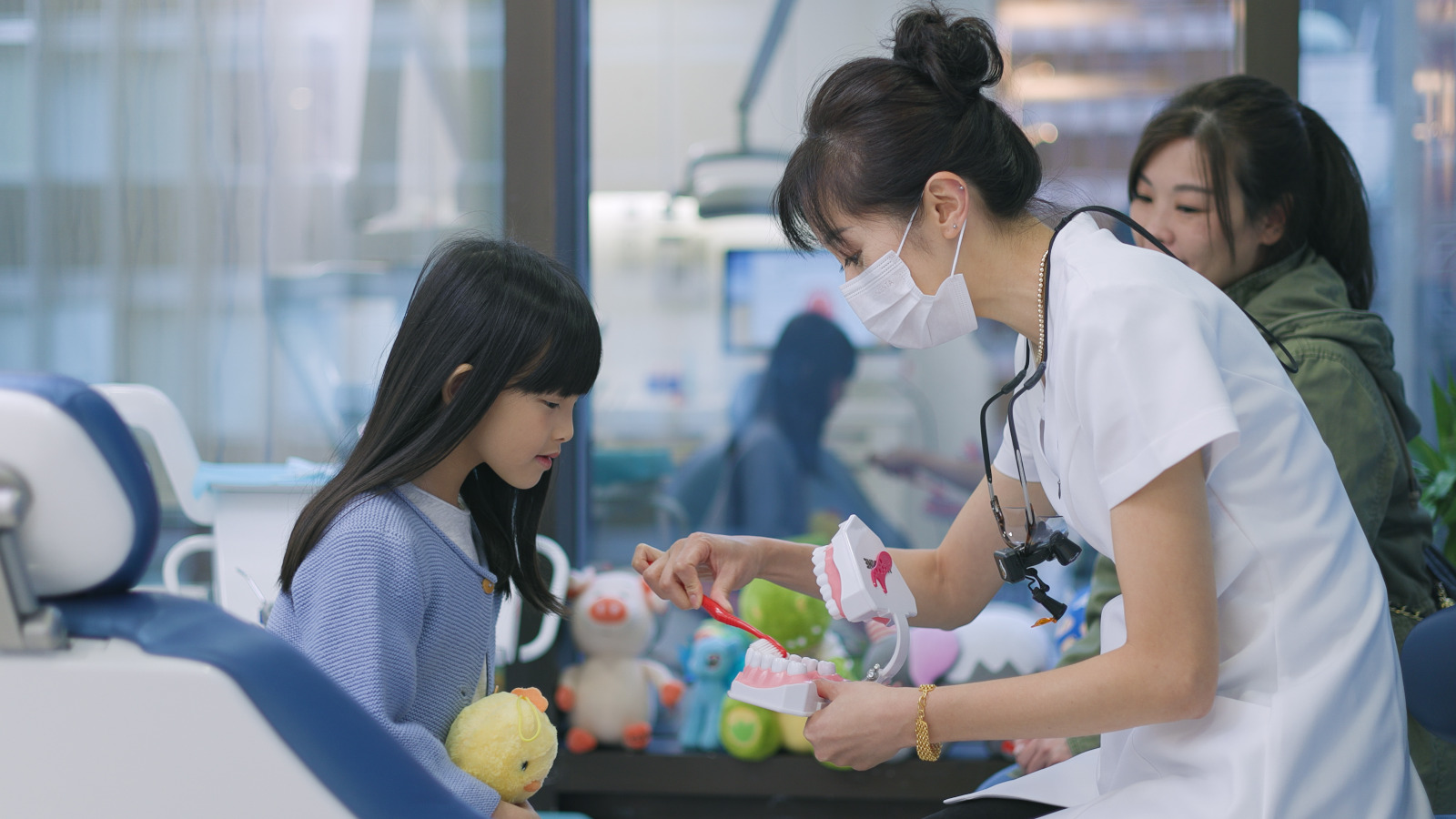Dental trauma is very common amongst all children. Toddler aged children commonly trip and fall when learning to walk, often on their face and teeth. Older children often have dental trauma while playing at home or playing sports. It's important for parents to get prepared to handle dental trauma if the need arises.
Potential consequences of chipped or missing teeth
Children with chipped or missing teeth may feel self-conscious about their appearance, which can affect their self-esteem and social interactions. Besides, it can also cause bite problems, which can lead to jaw pain, headaches, and other issues. If dental trauma occurs to a child's primary (baby) tooth, it can still affect the development of the underlying permanent tooth, which can lead to long-term dental issues.

For Babies, toddlers, and young children
Children between age 1-3 are often unsteady on their feet. They are learning to stand, walk, run, jump, and even climb! Children age 3-5, may also have dental trauma as they are active and accident prone.
If your child has a dental accident, they may chip/fracture, displace their teeth, their teeth may fall out and more. Please bring your child to see a dentist ASAP if they have any trauma to their teeth, lips, and mouth.
If a child hits, chips, or displaces their tooth, the nerve of their tooth may be affected and potentially damaged, causing an infection. If trauma causes the baby tooth to fall out, try to locate the tooth, but DO NOT put it back in the tooth socket. This may cause damage to the developing permanent tooth.
Early action may prevent tooth infection and damage to permanent teeth, so prompt treatment by a dentist is very important. The dentist will check if any tooth fragments are in the lips/gums, check for infection, take x-rays, and give parents information about treatment and palliative care.


For older children
Most children 5 years and older, have some permanent teeth. Treatment of trauma on permanent teeth is different than on primary teeth. Please remind your children to wear a sports mouthguard when playing sports such as basketball, football, rugby, etc. A sports mouthguard can minimize damage of their teeth in cases of dental trauma.
In the case of tooth fracture, please locate the tooth fragment and bring your child to the dentist asap. If possible, the tooth fragment may be reattached. For a complicated tooth fracture where the nerve is exposed, you may see blood or a red spot in the middle of the tooth. This may be treated with a conservative partial root canal, if the child is seen the same day as the trauma. If treatment is delayed, the child's tooth nerve may die, need a full root canal, and in extreme cases, lose their tooth.
If an older child's tooth is knocked out, please locate the tooth, rinse gently, and try to replant the tooth as soon as possible and see the dentist the same day. If you cannot replant the tooth, place the tooth in milk or saline and bring it to the dentist.

With any dental trauma, please see the dentist ASAP, apply cold compress if there is any oral or facial swelling, and eat a soft diet for at least 1 week. Remember to keep calm and smile on!
Original reproduction: https://www.hk01.com/健康Easy/849785/小朋友意外撞崩牙-乳齒-恆齒處理有分別-牙醫教正確急救3步曲
